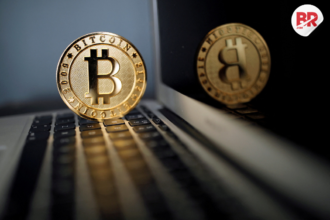
Indonesia is making big moves.
The country’s sovereign wealth fund, Danantara, is getting ready to sign a $8 billion deal with US firm KBR Inc to build 17 modular oil refineries. This deal is part of a wider trade agreement with the United States that helped cut US tariffs on Indonesian goods from 32% to 19%.

This refinery plan was quietly revealed during a closed-door meeting by Economic Minister Airlangga Hartarto. A presentation seen by Reuters confirmed the details. The deal hasn’t been officially announced yet, but it’s clear Indonesia is aiming high.
A Deal Born From Tariffs
Just last week, Indonesia and the US signed a trade pact to reduce tensions over new tariffs. The agreement includes big promises:
- More Indonesian purchases of US energy, farm goods, and aircraft
- A potential $2 billion investment by Indorama to make blue ammonia in Louisiana
- And yes, this massive refinery contract with KBR
Danantara, which controls over $900 billion in assets, is leading the refinery project. It’s part of Indonesia’s goal to boost economic growth from 5% to 8%.
Why It Matters
This isn’t just about oil. It’s about jobs, technology, and future industry. The 17 refineries will help Indonesia process more of its own oil at home. That means less imports and more local production.
KBR, a top US engineering firm, is known for large-scale energy projects. Their tech and experience could transfer key skills to Indonesia’s workforce.
Also in the same trade deal, President Trump said Indonesia would buy 50 Boeing planes, with the total aviation deal worth $14.4 billion.
Also Read India Becomes Thailand’s 2nd Biggest Market with 30% Surge in Flights
More US Firms Entering
Apple and General Electric were also mentioned in the same trade presentation. These US firms could now enjoy relaxed rules for selling tech and medical gear in Indonesia.
Last year, Apple faced a sales ban because it didn’t meet “local content” rules. That changed after it promised a $300 million investment. The new deal makes it easier for other US firms to enter the market without as many local restrictions.
What’s Next for Indonesia?
This trade win could be a turning point. The tariff cut alone could boost GDP growth by 0.5%, according to the government. Indonesia also wants to be a hub for regional industries looking to move out of China.
By securing a deal like this, Jakarta shows it’s open for business — especially from the US. The $8 billion refinery contract is just one part of a bigger vision.
Indonesia played it smart. It used the threat of tariffs to push for something better — more jobs, more investment, and real economic change.
And with this $8 billion deal, it’s clear: Indonesia isn’t waiting for the world — it’s building its own future.
Also Read AstraZeneca to Invest $50 Billion in US Amid Manufacturing Push and Tariff Threat












